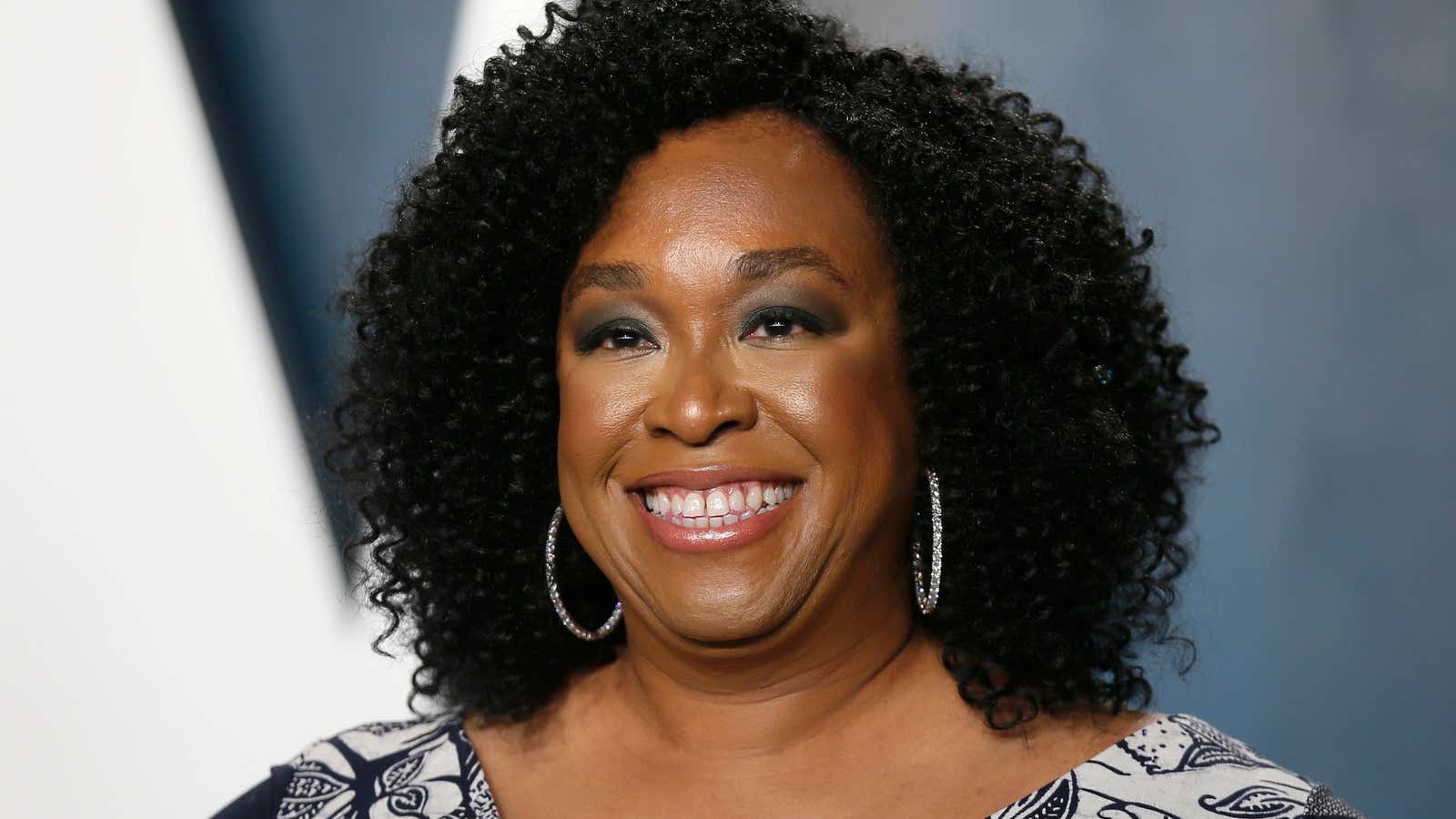It can be hard to know when it’s time to quit your job. But a new interview with Shonda Rhimes highlights one important rule of thumb: When you feel undervalued, it’s time to start looking for a new gig.
In the interview with The Hollywood Reporter, Rhimes—the creator of blockbuster shows like Grey’s Anatomy and Scandal—explains that in 2017, her relationship with ABC was strained, with plenty of battles over everything from budgets to content. But the last straw in her relationship with ABC came in the form of a Disneyland ticket snafu.
She’d received two all-inclusive passes as part of her deal with ABC, which is owned by Disney, but requested an additional ticket for her sister for a family trip. The story explains:
After some unwanted back-and-forth—”We never do this,” she was told more than once—Rhimes was issued an additional pass. But when her daughters arrived in Anaheim, only one of the passes worked. Rhimes lobbed a call to a high-ranking executive at the company. Surely, he would get this sorted.
Instead, the exec allegedly replied, “Don’t you have enough?”
Rhimes was beside herself. She thanked him for his time, then hung up and called her lawyer: Figure out a way to get her over to Netflix, or she’d find new representatives.
Some might argue that Rhimes, as a wildly successful multimillionaire showrunner, needn’t have made a fuss over a ticket she could have just purchased herself. Others might suggest that she was wrong to ask for that kind of favor from her company.
But the issue isn’t whether or not Rhimes could afford a ticket. Clearly she could, but then, so could Disney—particularly for the superstar whose television empire had made the company more than $2 billion.
The real issue in this story isn’t the money at all, but what the ticket back-and-forth symbolized. Rhimes felt she was working for a company that haggled with her even over trivial matters, and tried to shame her when she asked for more.
The executive’s question—“Don’t you have enough?”—is the kind of guilt trip that managers often use to try to discourage people from asking for raises or otherwise advocating for themselves. Under a certain type of employer’s logic, it’s simply in bad taste to ask for what you want, rather than settle for what you get. And women, particularly Black women, who violate that norm may be penalized accordingly.
Michaela Coel, the creator of HBO’s critically acclaimed TV series I May Destroy You, recently told a relevant tale about her attempts to negotiate 5% of the copyright on the series.
Coel recalls one clarifying moment when she spoke with a senior-level development executive at Netflix and asked if she could retain at least 5% of her rights. “There was just silence on the phone,” she says. “And she said, ‘It’s not how we do things here. Nobody does that, it’s not a big deal.’ I said, ‘If it’s not a big deal, then I’d really like to have 5% of my rights.’”
In this case, the executive was trying to downplay the importance of an issue that was clearly important to Coel—and, in so doing, letting Coel know that this wasn’t the kind of place that sufficiently valued her work and talent.
Erica Joy, director of engineering at GitHub, made just this point on Twitter in reference to the Rhimes story, writing: “we are constantly being given signals about how much we are valued by those around us. that a high ranking network exec pushed back on a $154 pass signaled that the exec did not value @shondarhimes nearly enough.”
Asking for favors like a Disney pass is the kind of thing that falls largely in the purview of star performers. But everyone has likely encountered certain symbolic gestures that let them know whether or not their employer is invested in them—a thoughtful note from a boss after a tough week, a noticeable snub when it’s time to send out award nominations. Even small moments can be quite revealing. Like Rhimes, we should learn to pay attention to them.
